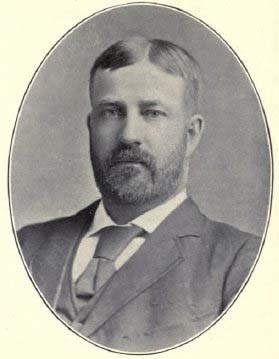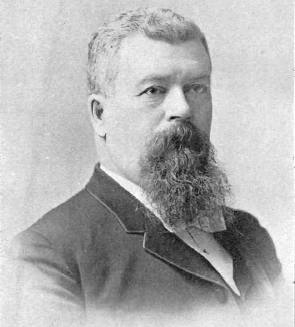Related Research Articles

Sir Henri Charles Wilfrid Laurier was a Canadian lawyer, statesman, and politician who served as the seventh prime minister of Canada from 1896 to 1911. The first French Canadian prime minister, his 15-year tenure remains the longest uninterrupted term of office among Canadian prime ministers and his nearly 45 years of service in the House of Commons is a record for the House. Laurier is best known for his compromises between English and French Canada.

The Manitoba Schools Question was a political crisis in the Canadian province of Manitoba that occurred late in the 19th century, attacking publicly-funded separate schools for Roman Catholics and Protestants. The crisis was precipitated by a series of provincial laws passed between 1890 and 1896, and another passed in 1916.
The Saskatchewan Act is an act of the Parliament of Canada which established the new province of Saskatchewan, effective September 1, 1905. Its long title is An Act to establish and provide for the government of the Province of Saskatchewan. The act received royal assent on July 20, 1905. The Saskatchewan Act is part of the Constitution of Canada.

Franco-Manitobans are French Canadians or Canadian francophones living in the province of Manitoba. According to the 2016 Canadian Census, 40,975 residents of the province stated that French was their mother tongue. In the same census, 148,810 Manitobans claimed to have either full or partial French ancestry. There are several Franco-Manitoban communities throughout Manitoba, although the majority are based in either the Winnipeg Capital Region or the Eastman Region.
In Canada, a separate school is a type of school that has constitutional status in three provinces and statutory status in the three territories. In these Canadian jurisdictions, a separate school is one operated by a civil authority—a separate school board—with a mandate enshrined in the Canadian Constitution or in federal statutes. In these six jurisdictions a civil electorate, composed of the members of the minority faith, elects separate school trustees according to the province's or territory's local authorities election legislation. These trustees are legally accountable to their electorate and to the provincial or territorial government. No church has a constitutional, legal, or proprietary interest in a separate school.

Sir Rodmond Palen Roblin was a businessman and politician in Manitoba, Canada.

Thomas Greenway was a Canadian politician, merchant and farmer. He served as the seventh premier of Manitoba from 1888 to 1900. A Liberal, his ministry formally ended Manitoba's non-partisan government, although a de facto two-party system had existed for some years.

Joseph Martin was a lawyer and politician in Manitoba, British Columbia and the United Kingdom often referred to as "Fighting Joe".
The legal dispute over Quebec's language policy began soon after the enactment of Bill 101, establishing the Charter of the French Language, by the Parliament of Quebec in 1977.

The 1905 Alberta general election was the first general election held in the Province of Alberta, Canada, shortly after the province entered Canadian Confederation on September 1, 1905. The election was held on November 9, 1905, to elect twenty-five members to the 1st Alberta Legislative Assembly.

The official languages of Canada are English and French, which "have equality of status and equal rights and privileges as to their use in all institutions of the Parliament and Government of Canada," according to Canada's constitution. "Official bilingualism" is the term used in Canada to collectively describe the policies, constitutional provisions, and laws that ensure legal equality of English and French in the Parliament and courts of Canada, protect the linguistic rights of English- and French-speaking minorities in different provinces, and ensure a level of government services in both languages across Canada.
Section 23 of the Canadian Charter of Rights and Freedoms is the section of the Constitution of Canada that guarantees minority language educational rights to French-speaking communities outside Quebec, and, to a lesser extent, English-speaking minorities in Quebec. The section may be particularly notable, in that some scholars believe that section 23 "was the only part of the Charter with which Pierre Trudeau was truly concerned." Trudeau was the prime minister who fought for the inclusion of the Charter of Rights in the Constitution of Canada in 1982.

Louis Philippe Adélard Langevin was a Canadian Oblate priest and Archbishop of Saint-Boniface. He founded the La Liberté newspaper published in Manitoba on May 20, 1913.
Because the country contains two major language groups and numerous other linguistic minorities, in Canada official languages policy has always been an important and high-profile area of public policy.
The Common Schools Act of 1871 was legislation of the Canadian Province of New Brunswick, passed by the 22nd New Brunswick Legislative Assembly, which replaced the Parish Schools Act of 1858. The legislation aimed to abolish church-run schooling in New Brunswick and replace it with a system of government-run "common schools." The case of Maher v. Town Council of Portland was initiated as a result, and in the end, the Judicial Committee of the Privy Council upheld the Act. The Act was stridently opposed by the Roman Catholic Church and its adherents, and a series of clashes between New Brunswick Catholics and the provincial government culminated in the shooting of two people following riots at Caraquet in 1875, after which the Act was substantially amended to implement a joint religious/secular schooling system.

Tobias Crawford Norris was a Canadian politician who served as the tenth premier of Manitoba from 1915 to 1922. Norris was a member of the Liberal Party.
The existence of Catholic schools in Canada can be traced to the year 1620, when the first school was founded Catholic Recollet Order in Quebec. The first school in Alberta was also a Catholic one, at Lac Ste.-Anne in 1842. As a general rule, all schools in Canada were operated under the auspices of one Christian body or another until the 19th century.

The history of education in Canada covers schooling from elementary through university, the ideas of educators, and the policies of national and provincial governments. In 1957, Charles Phillips divided the history of public schooling in Canada into four periods or stages:
Disallowance and reservation are historical constitutional powers in Canada that act as a mechanism to delay or overrule legislation passed by Parliament or a provincial legislature. In contemporary Canadian history, disallowance is an authority granted to the governor general in council to invalidate an act passed by a provincial legislature. Reservation is an authority granted to the lieutenant governor to withhold royal assent from a bill which has been passed by a provincial legislature; the bill is then "reserved" for consideration by the federal cabinet.

Section 93 of the Constitution Act, 1867 is a provision of the Constitution of Canada relating to education. It gives the provinces a broad legislative jurisdiction over education. Section 93 also contains guarantees of publicly funded denominational and separate schools for Catholic or Protestant minorities in some provinces.
References
- 1 2 3 4 Verrette, Michel. February 7, 2006. "Manitoba Schools Question." The Canadian Encyclopedia. Historica Canada (last updated June 01, 2016).
- ↑ Bale, Gordon (1985). "Law, Politics, and the Manitoba School Question: Supreme Court and Privy Council". Canadian Bar Review. 63 (461). Canadian Bar Association: 467–473.
- ↑ "The Manitoba School Questions: 1890 to 1897 (The Laurier-Greenway Compromise)". Manitoba (Digital Resources on Manitoba History). p. 6. Retrieved 14 July 2015.
- ↑ Fletcher, Robert (1949). "The Language Problem in Manitoba's Schools". MHS Transactions. 3 (6). Manitoba Historical Society: n.p.